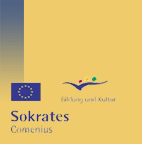The child: psychological and pedagogical considerations
A psychosocial approach: Erik Erikson
Sigmund Freuds theories have had
profound effects on the study of development. Freud acknowledged a variety of
human motives, but focused mainly on the libido, the pleasure-seeking impulse.
His theories about these unconscious drives have influenced modern thinking
about emotion, motivation, and personality development. Freud felt that there
are three parts to the personality - the id (instinctual), the ego (realistic),
and the superego (moral-ethical).The ego controls perceived dangerous impulses
by means of various mechanisms of defense.
Just as Freuds focus was on the id,
Erikson (1963) is primarily concerned with the implications of the ego for
human development. For Erikson, human development can only be understood in the
context of ones society, and he stresses the relationship between the ego and
the social forces that influence it at different periods of a persons live.
Erikson divided the life span into
eight stages of psychosocial development. Each stage is characterized by an
emotional crisis with two possible outcomes, one favourable and one
unfavourable. The resolution of each crisis determines subsequent development. The
first four stages are particularly relevant to our focus on young children.
Table 1-The
first four stages of Eriksons psychosocial development
|
Central life crisis
|
Positive resolution
|
Negative outcome
|
|
Trust vs.
Mistrust, (birth to eighteen months)
|
Reliance on
caregiver who has become an inner certainty as well as an outer
predictability leads to development of trust in the environment.
|
Fear,
anxiety, and suspicion. Lack of care, both physical and psychological, by
caregiver leads to mistrust of environment.
|
|
Autonomy vs. Doubt,
(eighteen
months to three years)
|
Sense of self
as worthy. Assertion of choice and will. Environment encourages independence,
leading to pride and good will.
|
Loss of
self-esteem. Sense of excessive external control causes doubt of self and
others.
|
|
Initiative
vs. Guilt, (three to six years)
|
Ability to
learn, to initiate activities, to enjoy mastery and achievement.
|
Inability to
control newly felt power. Realization of possible failure leads to guilt and
fear of punishment.
|
|
Industry vs.
Inferiority,
(six years to
puberty)
|
Learns value
of work; acquires skills and tools of technology. Competence helps to order
things and to make things work.
|
Repeated
frustration and failure lead to feelings of inadequacy and inferiority,
affecting view of life.
|
(Adapted from
Erikson, 1963)
As Puckett and
Black (2000:85-86) emphasized certainly, it is more desirable for children to
grow up having a sense of basic trust in themselves as competent and effective
individuals than to become insecure, distrusting, (
). The ability to see tasks
to be accomplished and to proceed with them rather than relying on the
permissions and directions of others is far more productive than a fear of
reprimand, embarrassment, or failure so intense than taking the initiative is left
to others. The desires to know, know how, and to do well are traits far more
self-fulfilling and success-oriented than feelings of incompetence, reluctance,
and perhaps rejection of diverse experiences and new knowledge.
So it is an important goal for early
education to develop healthy personalities and to value early childhood
experiences and relationships.











